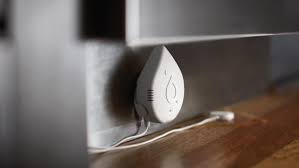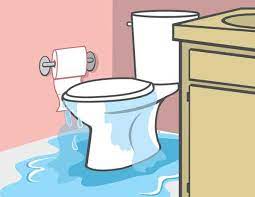 March 2023
March 2023
Condominium insurance premiums and deductibles have been rising at an alarming pace. Much of these increases pertain to increased frequency of floods and resulting damage.
Condominium corporations have effective and practical solutions to reduce these increases and prevent damage.
 Water detection systems are easily deployed to detect leaks as they occur, alert corporation staff, and even shut off the water to minimize damage. With water detectors deployed, many major building floods could be avoided resulting in a much smaller clean-up effort at a cost lower than the corporation’s insurance deductible thus not impacting on insurance rates. Lower damage costs, more stable insurance premiums and smaller deductibles are the results of preventing building flooding.
Water detection systems are easily deployed to detect leaks as they occur, alert corporation staff, and even shut off the water to minimize damage. With water detectors deployed, many major building floods could be avoided resulting in a much smaller clean-up effort at a cost lower than the corporation’s insurance deductible thus not impacting on insurance rates. Lower damage costs, more stable insurance premiums and smaller deductibles are the results of preventing building flooding.
Annual safety inspections play a crucial role. Ensure smoke alarms and carbon monoxide detectors are working properly. Visibly confirm each unit’s water hoses and pipes are not leaking. Toilets, faucets, below sinks, water pans and all visible water connection hoses should be checked. Check walls for signs of moisture. Clean lint traps, air ducts and chiller system annually. Repairing identified leaks will reduce current water bills.
 Annual unit inspections should be documented with owners informed of noted deficiencies. When an owner fails to address noted deficiencies, and these deficiencies result in damage to other units or common areas, owners can be more easily held accountable for their failure to undertake repairs. In certain instances, should the owner fail to complete noted repairs, the corporation can undertake repairs and assess costs to the owner.
Annual unit inspections should be documented with owners informed of noted deficiencies. When an owner fails to address noted deficiencies, and these deficiencies result in damage to other units or common areas, owners can be more easily held accountable for their failure to undertake repairs. In certain instances, should the owner fail to complete noted repairs, the corporation can undertake repairs and assess costs to the owner.
Condominium boards and managers can ensure their property remains in good condition and is a low-risk property for insurers. They do so by following an annual maintenance and inspection plan, performing regular building inspections, documenting findings, communicating results and ensuring necessary repairs are completed.








